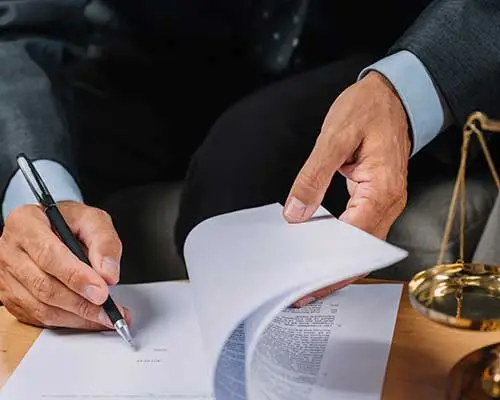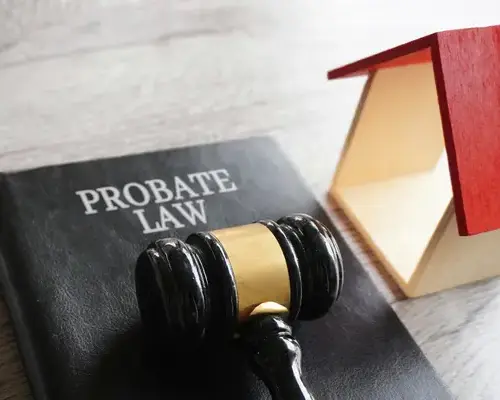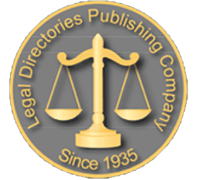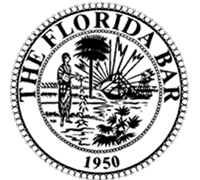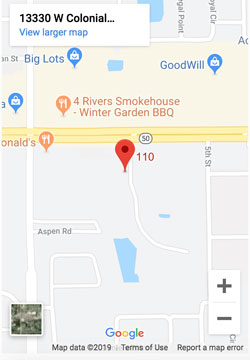Evidence Needed to Contest a Will: A Checklist
A last-minute change to a will, a new caregiver who suddenly inherits everything, or a signature that just doesn’t look right—these are all red flags that can make you question a will’s validity. While these situations raise suspicion, turning that suspicion into a successful legal challenge requires concrete proof. You need to connect the dots for the court in a way that is clear and convincing. This article will help you do just that. We will explore how to translate those warning signs into a solid legal case by gathering the right evidence needed to contest a will, helping you determine if your concerns can be substantiated in a Florida court.
Key Takeaways
- Focus on Legal Grounds, Not Hurt Feelings: A will contest must be based on specific legal arguments like the creator’s lack of mental capacity, undue influence from another person, or an improperly signed document—not simply because you feel the outcome is unfair.
- Build a Narrative with Hard Evidence: A strong case is built by piecing together a clear story for the court using medical records, financial statements, personal correspondence, and witness testimony to prove the will is invalid.
- Time is Not on Your Side, So Act Now: Florida law imposes strict and short deadlines for challenging a will. The most critical step you can take is to consult with a probate attorney immediately to protect your right to file a claim before it’s too late.
When Can You Contest a Will in Florida?
Questioning the validity of a loved one’s will is a difficult and emotional step to take. You may feel that the document doesn’t reflect their true wishes or that something went wrong during its creation. Florida law recognizes that wills are not always valid, and it provides a legal process for challenging one. However, you can’t contest a will simply because you are unhappy with its contents. You must have valid legal grounds and the standing to bring a challenge.
Understanding the specific circumstances that allow for a will contest is the first step. These situations often involve questions about the person’s state of mind, the influence of others, or the technical legality of the document itself. Let’s walk through the primary reasons for contesting a will, who is legally permitted to do so, and the critical deadlines you need to know.
Common Reasons for Contesting a Will
For a will contest to be successful, you must prove that the will is invalid for a specific legal reason. The most common grounds in Florida include:
- Lack of Mental Capacity: The person who made the will (the testator) must have been of “sound mind” when they signed it. This means they understood they were signing a will, knew the general nature of their assets, and recognized who their heirs were. If you can show they lacked this basic understanding due to dementia, illness, or other cognitive issues, the will may be invalidated.
- Undue Influence: This occurs when someone manipulates or pressures the testator into creating or changing their will to benefit the manipulator. It’s more than just giving advice; it’s a form of coercion that overpowers the testator’s free will. This is often seen when a caregiver or a new acquaintance suddenly becomes the primary beneficiary.
- Fraud or Forgery: A will can be challenged if it was created through fraudulent means. This could mean the testator was tricked into signing a document they believed was something else, or the signature on the will is an outright forgery.
- Improper Execution: Florida has very strict requirements for how a will must be signed and witnessed. The will must be in writing, signed by the testator at the end, and signed by two credible witnesses in the testator’s presence. If any of these technical steps were missed, the will can be thrown out.
Who Can Legally Contest a Will?
Not just anyone can challenge a will. Under Florida law, you must be an “interested party,” which means you have a direct financial or legal stake in the outcome of the estate. If the will were invalidated, you would stand to inherit something or inherit more than you were left in the contested will.
Typically, interested parties include:
- Beneficiaries named in the current will.
- Beneficiaries named in a previous version of the will.
- Heirs who would inherit under Florida’s intestacy laws if there were no will at all (like a spouse or children).
- Creditors of the estate.
If you don’t fall into one of these categories, you likely do not have the legal standing to file a will contest, even if you believe something is wrong. An experienced probate attorney can help you determine if you qualify as an interested party.
Deadlines and Legal Requirements
Time is of the essence when contesting a will in Florida. The state imposes strict deadlines, and if you miss them, you lose your right to challenge the will forever. Generally, you must file your challenge before the court issues an order admitting the will to probate and formally appointing a personal representative.
Once you receive a “Notice of Administration” from the estate’s personal representative, a clock starts ticking—you typically have just 90 days from the date of that notice to file your objection. Because the window is so short and the legal requirements are so precise, it is critical to act quickly. The moment you suspect a problem with a will, you should seek legal advice to understand your rights and options. Don’t wait until it’s too late to protect your interests.
What Evidence Do You Need to Contest a Will?
Challenging a will requires more than just a feeling that something is wrong; it requires concrete evidence. The court won’t overturn a will simply because the outcome seems unfair. Instead, the person contesting the will—known as the petitioner—has the responsibility to present clear and convincing proof that the document is invalid. This means your case will be built on the quality and strength of the documents, records, and testimony you can gather.
Think of yourself as building a case, piece by piece. Each piece of evidence helps paint a picture for the court of the circumstances surrounding the will’s creation. Was the person who made the will (the testator) of sound mind? Were they being pressured by someone? Was the signature forged? Answering these questions requires a methodical approach to collecting proof. Working with an experienced probate and estate planning attorney is essential, as they can help you identify which types of evidence are most relevant to your specific situation and ensure everything is properly submitted to the court.
Medical Records and Capacity Documents
One of the most common grounds for contesting a will is a lack of testamentary capacity, which means the testator wasn’t mentally competent when they signed the document. Medical records are the cornerstone of proving this claim. These documents provide a clinical, objective look at the testator’s health and mental state around the time the will was created. You’ll want to gather records from doctors, hospitals, and other healthcare providers that detail diagnoses like dementia or Alzheimer’s, prescribed medications that could affect cognition, and notes on their overall mental clarity. These records can demonstrate whether the testator truly understood the nature of their assets and who would naturally inherit them.
Financial Records and Transactions
Financial documents are crucial, especially in cases where you suspect undue influence or fraud. A sudden and unexplained change in how the testator managed their money can be a significant red flag. You should look for bank statements, investment records, property deeds, and credit card statements from the period leading up to the will’s signing. Large withdrawals, unusual transfers of assets, or the addition of a new person to bank accounts could indicate that someone was manipulating the testator for their own financial gain. These records provide a tangible trail of actions that may contradict the testator’s long-term financial habits and intentions.
Emails, Texts, and Letters
Personal correspondence can offer a powerful glimpse into the testator’s state of mind and personal relationships. Emails, text messages, and handwritten letters can reveal their true feelings and intentions, which may be very different from what is stated in the will. For example, a series of emails might show a close and loving relationship with a child who was unexpectedly disinherited. Conversely, they could reveal a manipulative or threatening relationship with the person who benefited most from the new will. This type of evidence helps build a narrative and provides personal context that documents alone cannot.
Previous Wills and Estate Plans
If the testator had previous wills or estate planning documents, they can be incredibly persuasive evidence. A history of prior wills that show a consistent and logical plan for distributing assets can make a sudden, drastic change in a new will seem highly suspicious. For instance, if three previous wills left everything equally to the testator’s children, but a new will signed days before their death leaves the entire estate to a caregiver, it raises serious questions. Comparing the documents allows you to highlight inconsistencies and argue that the contested will does not reflect the testator’s true, long-held wishes. An attorney can help you legally obtain these documents.
Witness Statements and Expert Opinions
The people involved in the will’s creation and the testator’s life can provide essential testimony. The witnesses who were present at the signing of the will can speak to the testator’s demeanor and whether proper legal procedures were followed. Statements from family, friends, and caregivers can also shed light on the testator’s mental state and any manipulative relationships they may have been in. In addition, expert witnesses can be brought in to offer professional opinions. A medical expert can review health records to assess mental capacity, while a handwriting expert can analyze signatures to detect potential forgery.
The Role of Witness Testimony in Your Case
When you’re contesting a will, documents like medical and financial records are essential, but they only tell part of the story. Witness testimony brings the facts to life by providing context and firsthand accounts of the deceased’s circumstances. This testimony isn’t limited to what someone says on the stand in a courtroom. It also includes sworn written statements, known as affidavits, and expert reports that can clarify complex issues for the court.
The right witnesses can help establish the testator’s mental state, describe their relationships, and shed light on whether they were susceptible to manipulation. From the people who saw the will being signed to the experts who can analyze a signature for fraud, each witness plays a specific role. Their collective testimony helps build a comprehensive picture for the judge, turning a stack of papers into a compelling narrative about what really happened.
Who Makes a Good Witness?
A good witness is someone who has direct, personal knowledge of the facts. In a will contest, the most obvious witnesses are the individuals who were physically present for the will’s signing. Under Florida law, a will must be signed in the presence of two attesting witnesses. These individuals can testify about the circumstances of the signing, confirming whether the testator appeared to be of sound mind and was acting of their own free will. Beyond the official witnesses, anyone who had regular contact with the deceased can be valuable. This includes friends, neighbors, or colleagues who can speak to the testator’s mental clarity, typical behavior, and key relationships during the period the will was created. Their observations can help support or refute claims about the will’s validity.
What Qualifies as an Expert Witness?
While friends and family provide personal accounts, an expert witness offers a professional opinion based on their specialized knowledge. These individuals don’t need to have known the deceased personally. Instead, their role is to analyze specific pieces of evidence and explain their findings to the court. For example, if you suspect forgery, a forensic document examiner can compare the signature on the will to other known writing samples. If the case involves complex financial transactions, a forensic accountant can trace the money. Our attorneys often work with qualified experts whose testimony can provide the objective, technical evidence needed to prove your claims.
The Importance of Medical Testimony
Claims of “lack of testamentary capacity” are common in will contests, and medical testimony is the strongest evidence to support them. This involves more than just presenting medical records; it often requires testimony from medical professionals who can interpret those records for the court. A doctor, neurologist, or geriatric psychiatrist can explain how a condition like dementia or the side effects of a medication would have impacted the testator’s ability to understand their assets and the consequences of signing a will. Their expert opinion, grounded in medical science, provides a credible, objective assessment of the deceased’s mental state, which is far more persuasive than personal observations alone.
Statements from Family and Caregivers
The people closest to the deceased often hold the key to proving undue influence. Family members, close friends, and in-home caregivers have a unique perspective on the testator’s daily life and personal dynamics. They can testify about a manipulative relationship, sudden isolation from loved ones, or uncharacteristic changes in the deceased’s behavior and decisions. Their statements can also provide context for emails, letters, or other communications that suggest coercion or control. When you contact our firm, we can help you identify which friends, family members, or caregivers can provide the powerful, firsthand accounts needed to tell your side of the story.
How to Prove Undue Influence or Fraud
Proving that a will was the result of undue influence or fraud can feel like a monumental task, but it comes down to collecting the right evidence. Undue influence happens when a person in a position of trust manipulates the will-maker, pressuring them into making decisions they wouldn’t have made on their own. Fraud involves outright deception, like tricking someone into signing a document they don’t understand or forging a signature.
Both claims require you to show that the will doesn’t reflect the true intentions of the person who passed away. This isn’t about disagreeing with their choices; it’s about proving that those choices weren’t truly their own. Building a case involves piecing together a story with documents, financial records, and witness accounts. An experienced probate attorney can guide you through gathering the specific evidence needed to present a clear and compelling argument in court.
Documenting a Manipulative Relationship
To prove undue influence, you need to demonstrate that a manipulative relationship existed. This often involves showing that the influencer isolated the will-maker from other family and friends, creating a dependency. You can gather evidence like emails, text messages, or voicemails that reveal a pattern of control or pressure. Witness testimony is also crucial. Friends, caregivers, or other family members can describe the influencer’s controlling behavior and how the will-maker’s relationships with others changed. The goal is to paint a clear picture of a dynamic where one person’s free will was compromised by another’s power over them.
Finding Financial Evidence of Manipulation
Money is often a key motivator in cases of undue influence and fraud. A sudden and unexplained change in how the will-maker managed their finances can be a major red flag. You should look for evidence of unusual financial activity leading up to the creation of the new will. This could include large bank withdrawals, adding the influencer to bank accounts, or transferring property titles. Financial documents like bank statements, deeds, and gift tax returns can serve as concrete proof. This evidence helps show that the influencer was not just emotionally manipulative but was also benefiting financially from the relationship.
Showing Changes in Behavior and Decision-Making
A person’s physical and mental state is central to any claim of undue influence. If the will-maker was suffering from an illness that affected their judgment, they may have been more susceptible to manipulation. Medical records are essential here, as they can establish the person’s cognitive condition around the time the will was signed. You can also use testimony from doctors, nurses, or caregivers to confirm their state of health. Statements from friends and family describing sudden changes in the will-maker’s personality, memory, or decision-making abilities can further strengthen your case by showing they were in a vulnerable state.
Gathering Supporting Documents
Building a strong case requires a foundation of solid documentation. Start by collecting every version of the will you can find. Comparing a new, suspicious will to previous ones can highlight drastic changes that don’t align with the person’s long-held wishes. You should also gather any related legal documents, such as powers of attorney or trust agreements, which might show a pattern of influence. Correspondence with attorneys, financial planners, or other professionals can also provide insight. Essentially, you are collecting puzzle pieces that, when assembled, reveal a story of manipulation or deceit that led to the creation of an invalid will.
How to Authenticate Key Documents
When you contest a will, you’re essentially questioning its legitimacy. To do this successfully, you need to prove that the document presented to the court isn’t a true reflection of your loved one’s final wishes. This involves a careful process of authentication, where every aspect of the will—from the signature to the paper it’s printed on—is scrutinized. It’s not enough to simply have a feeling that something is wrong; you must present concrete evidence that the document is invalid.
Authenticating key documents is a detailed and technical process. It often requires a deep understanding of legal procedures and the ability to work with forensic experts. The goal is to show the court that the will is flawed due to forgery, improper execution, or tampering. Each piece of evidence you gather helps build a compelling narrative that supports your claim and demonstrates why the will should not be accepted as valid. An experienced estate planning and probate attorney can guide you through this complex process, ensuring every detail is properly examined and presented.
Verifying Signatures
One of the most direct ways to challenge a will is by questioning the signature. If you believe the signature was forged, you’ll need more than just a hunch. Courts rely on the expertise of forensic document examiners to analyze handwriting. These experts will meticulously compare the signature on the will with known, authentic samples of the person’s signature from other documents, like bank checks, contracts, or personal letters.
They look for subtle differences in pressure, slant, and letter formation that a forger might miss. As one legal expert notes, “Experts might check handwriting or signatures to prove that the will is fake or was changed illegally.” This professional analysis can provide powerful, objective evidence to support a claim of forgery.
Meeting Witness and Notary Rules
Florida has strict legal requirements for how a will must be signed and witnessed to be considered valid. A will can be invalidated if these formalities, known as the “execution” of the will, were not followed correctly. For example, the law generally requires the person making the will (the testator) to sign it in the presence of two credible witnesses. These witnesses must also sign the will in the testator’s presence and in each other’s presence.
If there weren’t enough witnesses, or if they didn’t actually see the testator sign the document, the will could be thrown out. A properly executed will is fundamental to its validity, and any deviation from the legal requirements creates an opening for a challenge.
Proving the Will Was Executed Correctly
Beyond just having witnesses, the entire signing process, or “execution ceremony,” must be done correctly. This means the testator must have been aware that the document they were signing was their will and must have signed it voluntarily. When a will is prepared and signed under the supervision of an attorney, it carries a strong presumption of validity.
As one law firm explains, “If a will was made correctly with a lawyer, courts usually give it a lot of respect and are less likely to overturn it.” An attorney ensures all legal steps are followed, creating a clear record that the will was executed properly. This makes it much more difficult for someone to later claim the will is invalid due to a procedural error.
Maintaining the Chain of Custody
The “chain of custody” refers to the chronological paper trail of a document. It’s essential to show who has had possession of the original will from the moment it was signed until it was presented in court. A clear and unbroken chain of custody helps prove that the document hasn’t been altered or swapped for a fraudulent version.
Think of it this way: “Each piece of evidence is like a puzzle piece. The more pieces you have, the clearer and more convincing your story becomes for the court.” If the will was stored securely with an attorney or in a bank’s safe deposit box, the chain is strong. However, if it was kept in a place accessible to many people, it raises questions about its integrity.
How to Build a Strong Case
Contesting a will can feel like a monumental task, but breaking it down into clear, manageable steps makes the process much more approachable. Building a strong case isn’t about a single “gotcha” moment; it’s about methodically gathering evidence and presenting a clear, compelling story to the court. With a structured approach, you can ensure that you’ve covered all your bases and given your challenge the best possible chance of success. The key is to be organized, thorough, and strategic from the very beginning. These steps will help you lay a solid foundation for your case.
Organize Your Documents
The foundation of any will contest is solid evidence. Start by gathering every relevant piece of paper you can find. Think of yourself as a detective piecing together a puzzle. You’ll need documents that support your claim, such as the original will, medical records that speak to the testator’s mental state, and financial statements that might show unusual activity. Don’t overlook personal correspondence like emails, letters, or text messages, as they can provide crucial context about relationships and intent. Having these documents organized and ready will make the entire legal process smoother for you and your attorney.
Create a Timeline of Events
Once you have your documents, the next step is to put them in order. A detailed timeline is one of the most powerful tools you can create. It helps you and your attorney see the full picture and identify patterns that might not be obvious otherwise. Start with major life events and then fill in the details using your collected documents. When did the testator’s health begin to decline? When was the new will signed? Were there large financial transactions around that time? This narrative helps frame your argument and makes it easier for the court to follow the story you’re telling.
Work with Your Attorney
You don’t have to do this alone. In fact, you shouldn’t. The first and most important step is to consult with an experienced probate attorney. They can review your evidence, determine if you have valid grounds to contest the will, and explain the complexities of Florida law. Your attorney will be your guide, helping you collect additional evidence through the formal discovery process, which can include requesting documents and interviewing witnesses. Think of your attorney as your strategic partner, ensuring every action you take is effective and moves your case forward.
Meet Court Requirements
Having strong evidence is only half the battle; you also have to follow the correct legal procedures. To formally contest a will in Florida, you must file a petition with the probate court in the county where the deceased person lived. This petition needs to clearly state why you are challenging the will and present the initial proof to support your claim. There are strict deadlines for filing, so it’s critical to act quickly. Missing a deadline can result in your case being dismissed, regardless of how strong your evidence is. An attorney can ensure all paperwork is filed correctly and on time.
Understand the Burden of Proof
In a will contest, the “burden of proof” falls on you, the person challenging the will. This might sound intimidating, but the standard in civil cases is typically the “preponderance of the evidence.” This simply means you have to show that your version of events is more likely to be true than not—even if it’s just by a small margin. You don’t need to prove your case beyond a reasonable doubt, as in a criminal trial. Your goal is to present enough credible evidence to tip the scales of justice in your favor, and a well-organized case is the best way to do that.
Presenting Your Evidence in Court
Once you’ve gathered your documents and witness statements, the next step is to organize them into a compelling case to present in court. This process isn’t just about having the right evidence; it’s about presenting it clearly, meeting strict deadlines, and working with the right people to tell your story. A strong legal strategy is built on a foundation of well-documented proof and a clear understanding of court procedures. With the right preparation, you can ensure your evidence is given the weight it deserves.
Your attorney will guide you through the formal process of submitting evidence, but understanding the key components can help you feel more prepared and in control. From managing timelines to collaborating with experts, each step is designed to build a logical and persuasive argument for the judge.
How to Document Evidence Effectively
To successfully contest a will, your argument needs to be supported by solid proof. Start by securing the original will, as this document is the primary evidence of the deceased’s final wishes. Next, gather statements from anyone who witnessed the signing. These individuals can confirm whether the will was executed properly and if the testator was of sound mind. Finally, obtain medical records from around the time the will was created. These documents are crucial for demonstrating the testator’s mental state and can help establish whether they had the capacity to make informed decisions about their estate plan.
Managing Court Deadlines
Time is of the essence when contesting a will in Florida. There are strict statutes of limitations, and missing a deadline can mean losing your right to challenge the will entirely. It’s vital to act quickly and file your challenge before the court officially accepts the will and opens the probate case. This is why it’s so important to engage a lawyer as soon as you suspect there might be an issue. An experienced attorney can help you understand the specific timelines for your case and ensure all necessary paperwork is filed correctly and on time, giving your challenge the best possible chance of being heard.
Collaborating with Expert Witnesses
In many will contests, the case comes down to the testimony of expert witnesses. These are professionals, like doctors or handwriting analysts, who can provide specialized knowledge to support your claims. For example, a physician can testify about the testator’s mental capacity based on their medical records. Both sides of the dispute will gather and share relevant evidence, including medical reports, financial documents, and witness statements. Your legal team will work with these experts to analyze the evidence and build a strong, fact-based argument that clarifies complex issues for the court.
Managing the Costs of Your Case
It’s important to be realistic about the financial side of contesting a will. These legal challenges can be complex and may involve significant expenses, including court costs and attorney’s fees that can amount to thousands of dollars. Before moving forward, have a frank discussion with your attorney about the potential costs versus the potential benefits. A successful challenge could secure your rightful inheritance, but it’s essential to weigh that against the financial and emotional investment required. This cost-benefit analysis will help you make an informed decision about how to proceed with your case.
Next Steps to Strengthen Your Case
Once you’ve determined you have grounds to contest a will, the next phase is about building a solid case. This involves carefully gathering evidence, understanding the legal process, and getting the right professional guidance. Taking deliberate, informed steps at this stage can make a significant difference in the outcome. Think of it as laying a strong foundation before you build the rest of your argument. Each piece of evidence and every decision you make contributes to the strength of your position in court.
Best Practices for Collecting Evidence
To build a compelling case, you’ll need to gather specific documents that support your claim. Each piece of evidence tells part of the story, and together, they can create a clear picture for the court. Start by focusing on collecting items like:
- The Original Will: This is the central document in your case.
- Medical Records: These can be crucial for establishing the testator’s mental state and capacity when the will was signed.
- Financial Documents: Bank statements, property deeds, and other financial records can reveal unusual transactions or clarify the deceased’s intentions for their assets.
- Correspondence: Emails, letters, or text messages can provide context, show relationships, and sometimes contain promises or explanations relevant to your claim.
- Witness Statements: Accounts from people who witnessed the will signing or observed the testator’s condition can be powerful supporting evidence.
Common Pitfalls to Avoid
When you’re preparing to contest a will, it’s easy to make mistakes that could weaken your case. One of the most common issues is mishandling evidence. Courts have strict rules about how evidence must be collected, preserved, and presented. For example, you can’t simply submit a photocopy of a document when an original is required, and witness testimony must follow specific legal procedures. Trying to manage this process on your own can lead to critical evidence being dismissed. An experienced attorney can help you follow these rules correctly, ensuring your hard work pays off.
Getting Professional Legal Support
If you believe you have a valid reason to contest a will, your most important step is to consult with a knowledgeable probate attorney. They can review the details of your situation and give you an honest assessment of your claim’s strength. An attorney who specializes in estate planning and probate will understand the nuances of Florida law and can guide you on the best course of action. This initial consultation can save you time, money, and stress by helping you understand your legal options and the challenges you might face.
What to Do Next
Time is a critical factor when contesting a will. Florida has strict deadlines, known as statutes of limitations, for filing a challenge. Your first move should be to seek advice from a qualified probate attorney as soon as possible. Ideally, you should do this before the will is officially accepted by the court, a process known as admitting the will to probate. An attorney can help you file the necessary paperwork to meet these deadlines and protect your rights. Don’t wait to get the answers you need—contact a legal professional to discuss your case and figure out your next steps.
Related Articles
- Probate Law – Legal Counsel P.A.
- Wills – Legal Counsel P.A.
- When to Hire a Probate Litigation Attorney
- Probate and Real Estate in Orlando, Florida – Legal Counsel P.A.
Frequently Asked Questions
I’m unhappy with what the will says. Is that enough reason to contest it? It’s completely understandable to feel hurt or confused by the contents of a will, but unfortunately, being unhappy with your inheritance isn’t a legal basis for a challenge. The court’s focus isn’t on whether the will is fair, but whether it is valid. To contest a will, you must provide evidence that it was created under improper circumstances, such as the person being mentally incapable of understanding the document, being pressured by someone else, or the signature being a forgery.
How can I prove something like undue influence if it happened privately? Proving undue influence often feels challenging because it rarely happens in plain sight. Instead of looking for one single piece of smoking-gun evidence, a strong case is built by piecing together a pattern of behavior. This involves gathering circumstantial evidence, such as financial records showing unusual transactions, emails or texts that reveal a controlling relationship, and testimony from friends or caregivers who noticed the will-maker becoming isolated or acting uncharacteristically. Together, these pieces can create a clear and convincing picture for the court.
What is the absolute first thing I should do if I suspect a will is invalid? The most critical first step is to speak with an experienced probate attorney immediately. Florida has very strict and short deadlines for contesting a will, and if you miss them, you lose your right to challenge it forever. An attorney can quickly assess your situation, explain your options, and ensure you file the necessary paperwork on time to protect your interests. Acting fast is essential.
What happens to the estate if I successfully contest the will? If the court agrees that the will is invalid, it is essentially thrown out. What happens next depends on the circumstances. If the deceased had a valid will from a previous date, the court will typically revert to that document to distribute the assets. If there is no other valid will, the estate will be handled as if the person died “intestate,” and Florida law will determine how the assets are divided among the closest surviving relatives.
Is contesting a will a long and expensive process? The time and cost involved can vary significantly from one case to another. Some disputes are resolved relatively quickly through negotiation or mediation, while others that go to trial can take much longer and become more expensive. It’s important to have a candid conversation with your attorney upfront about the potential costs, the strength of your evidence, and the value of the estate to help you make an informed decision about whether moving forward is the right choice for you.

